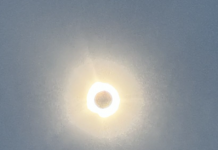
Bee and Kao Kalia Yang. Photo by Joe Treleven.
Writer, activist, and teacher Kao Kalia Yang’s award-winning 2008 memoir, The Latehomecomer, brought national attention to the Hmong immigrant experience and made her one of the most visible and influential Hmong voices in the country. Yang’s new memoir, The Song Poet, reflects on her father’s traditional Hmong song poetry and his transition from war-torn Laos to an at-times difficult life in Minnesota.
“When I told my father I might write about him, he said, ‘Nobody wants to read a book about a man like me.’ I recognize men like my father all over. … Stories of poverty, stories of men and women working and being dehumanized, they are everywhere. You just need to be brave enough to see.”
“As much as I’m a Hmong writer, I’m an American writer, and this is an American story. In a country where you talk about race and ethnicity, you need as many voices like mine as possible speaking on behalf of the immigrant narrative, as well as the refugees. In a world that’s creating more and more refugees all the time, I think my voice and my story are very relevant.”
“Many older Hmong people have a body scarred from war, physical scars that they hide beneath the winter coats and boots of Minnesota. Even in the summer, some of my uncles refuse to wear shorts or t-shirts because of the scars that they hide. All of my aunts, uncles, and my parents have nightmares about the past, where they’re chased through the jungles or their loved ones are torn from their hands again and again.”
“I’d be afraid that my parents would get lonely here because of the linguistic isolation, but in Minnesota they can be lonely with my aunts and uncles. It doesn’t take away from the sadness, but it allows the days to come one at a time.”
“Minnesota’s large Hmong community helps with the isolation of being an immigrant. I’m raising interracial kids, and if there is a place in the world where they have a chance of learning the Hmong language, it’s here. So that community is integral to the vision I have of the future for my children.”
“In traditional Hmong song poetry, your voice is your instrument. There is no accompanying music. In a tonal language, every breath you breathe carries meaning. It’s very much choreographed in the moment, much like American blues. It’s a very emotional experience. You don’t just sing song poetry and smile through it. A lot of it comes from the Hmong history. It’s always personal, and in that way I think it’s incredibly political, very much like the blues.”
“If you’re good at song poetry, you have a reputation and people want to hear you, record you. And my father is good. His songs were like the smell of coffee when you wake up, a natural beginning to the day. It wasn’t until I really listened to him at the Hmong American New Year that I understood he was doing something for the community at large. And then when my father stopped singing, the silence in the wake of my grandmother’s death, my heart for the first time missed the song.”







